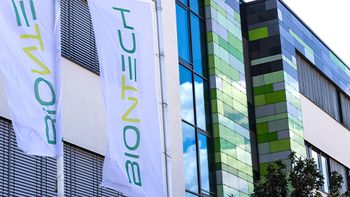
Hepatitis C therapies multiply and price concessions appear behind the scenes
Express Scripts touts a 'fundamental change' in drug pricing; others would call it negotiating a discount
Throughout 2014, Gilead Science’s Sovaldi treatment for hepC—the first drug that is an outright cure for the disease in many cases—has attracted
Express Scripts, the No. 1 pharmacy benefit manager (PBM), while complaining bitterly about “out of control” drug pricing, signaled a willingness to wait for a competing therapy to enter the market, and on Dec. 19, FDA approved AbbVie’s Viekira Pak, (ombitasvir, paritaprevir and ritonavir tablets co-packaged with dasabuvir tablets). The published price for Viekira is just over $83,000—nearly exactly Sovaldi’s price—but Express Scripts has negotiated an undisclosed discount with AbbVie. It also has an exclusive distribution arrangement through its Accredo specialty pharmacy for Express Scripts; at its roughly 1.4 billion scripts filled per year, Express Scripts services nearly one out of three Americans. (According to the company, the Viekira deal is limited to those clients whose covered lives include Express Scirpts’ National Preferred Formulary, amounting to 25 million patients.)
Express Scripts told the Wall Street Journal that its discount, while undisclosed, will have “the vast majority of its value” passed on to Express Scripts clients. And while announcing the agreement with AbbVie, it also noted that, as of Jan. 1, it is dropping Sovaldi, Harvoni (a newer therapy from Gilead) and J&J’s Olysio, which has occasionally been prescribed in combination with Sovaldi. The exclusion will not apply to patients currently on those therapies. Express Scripts says that its “independent” Pharmacy and Therapeutics formulary committee advocates the change. It also claims that Sovaldi patients had been limited by payers to patients at Stage 3 or 4 of disease progression, while now, under the National Preferred Formulary, any hepC patient will be covered.
There are more layers of consequences to the Express Scripts’ action. The company has made a strenuous pitch that specialty drug spending is growing by double-digit rates (and will reach 50% of all its claims in the late 2010’s), but this is partly the result of another trend—drug spending going from a medical benefit (paid for by health insurance) to a pharmacy benefit (paid by drug insurance). (At the same time, Express Scripts has touted its ability to control overall healthcare spending by managing drug costs as a pharmacy benefit.) Opening up Viekira to all hepC patients has a risk as well. From AbbVie's perspective, the company has been under the gun from Wall Street to expand beyond its Humira franchise, which brings in the bulk of its revenue. On the other hand, Gilead might respond with a greater willingness to discount its price; Express Scripts would like nothing better than a price war among hepC therapies. And while Express Scripts has been beating a drum about hepC's treatment costs, PhRMA is using the therapies' evolution to tout the value of its members commitment to drug research, in a newly issued
Newsletter
Stay ahead in the life sciences industry with Pharmaceutical Commerce, the latest news, trends, and strategies in drug distribution, commercialization, and market access.





